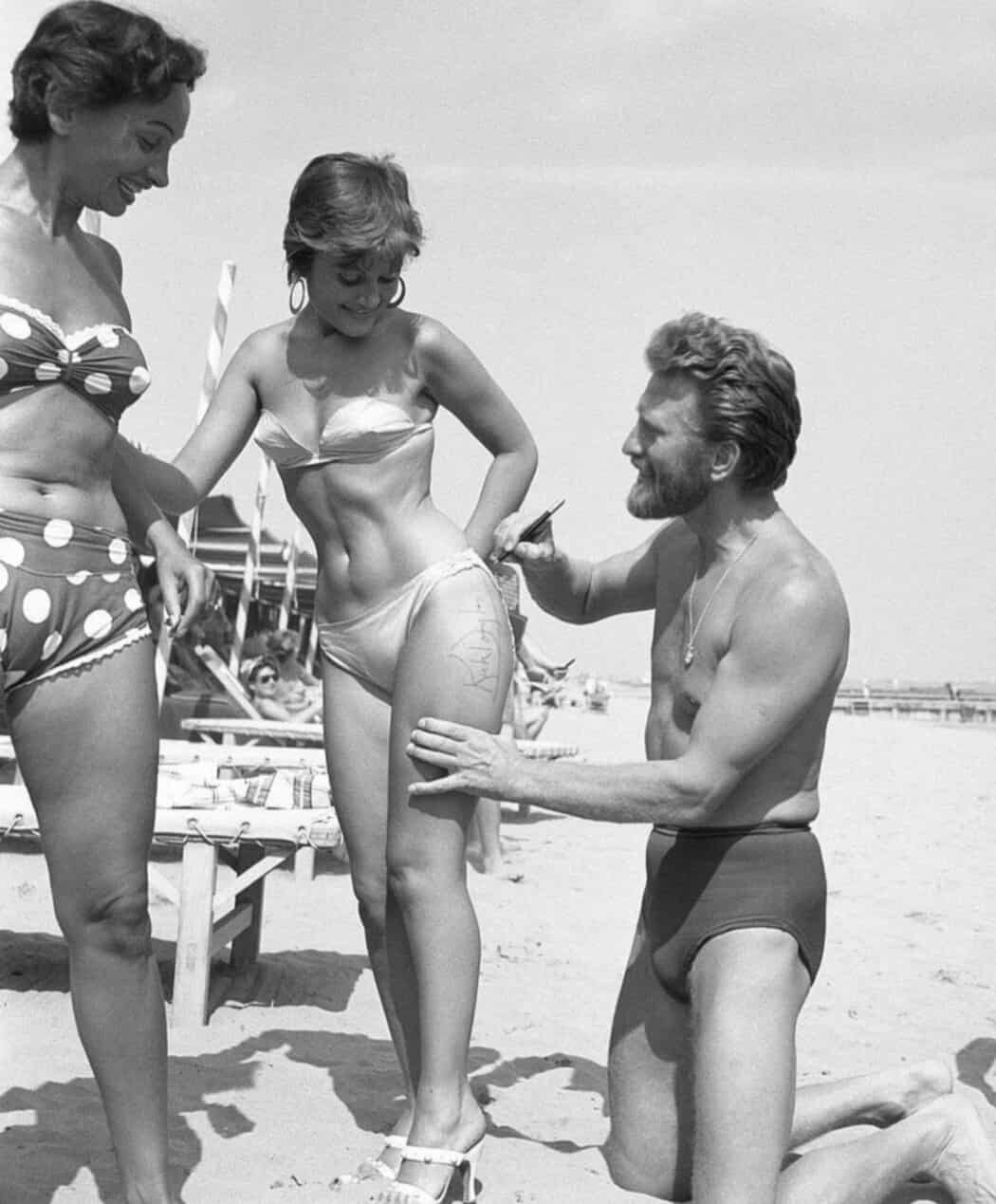Notable films like 20,000 Leagues Under the Sea (1954), Paths of Glory (1957), and Lust for Life (1956)—where he portrayed Vincent van Gogh—cemented his status as a leading man. In Spartacus (1960), arguably his most iconic role, Douglas not only starred but also produced the film. His decision to credit blacklisted screenwriter Dalton Trumbo helped challenge Hollywood’s blacklist era and underscored his commitment to artistic integrity.
Beyond acting, Douglas was a shrewd producer and advocate for creative control in filmmaking. His influence helped shift power dynamics in Hollywood, giving performers greater voice in shaping their careers.
Off-screen, Douglas’s personal life drew attention, particularly during the height of his fame. He married actress Diana Dill in 1943 and had two sons, including actor Michael Douglas. The couple divorced in 1951, and in 1954, Douglas married Anne Buydens. Their marriage lasted over 65 years and was a central part of his later life. In his writings, Douglas candidly reflected on his personal growth and the importance of Anne’s presence and support.
Even after suffering a stroke in 1991 that affected his speech, Douglas remained active in film and public life. He continued acting, wrote multiple books, and became a dedicated philanthropist. His charitable efforts focused on education, healthcare, and the arts, including significant donations to hospitals and universities.
In 1996, he received an Honorary Academy Award recognizing his contributions to the film industry and his advocacy for moral and creative leadership in cinema. His autobiography The Ragman’s Son became a bestseller, offering readers a candid look at his life’s triumphs and trials.
Kirk Douglas passed away in 2020 at the age of 103. His legacy lives on not only in the memorable roles he portrayed but also in his impact on Hollywood’s evolution. His story—marked by resilience, talent, and a commitment to creative freedom—continues to inspire future generations of actors and filmmakers.

